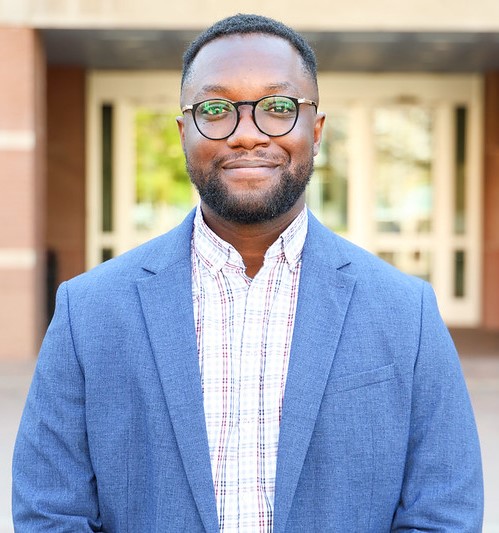PhD in Pharmaceutical Outcomes Research
Pharmaceutical Outcomes Research is a PhD program in the graduate program in Clinical Pharmacy. This program is housed in the Center for Pharmaceutical Outcomes Research (CePOR, SEE-por), a school-wide center in the Skaggs School of Pharmacy. Our doctoral curriculum is designed to provide competent and highly skilled researchers in the study of patient, provider, or population-level health care and health system interventions. We most often focus on economic, clinical, and humanistic outcomes such as clinical or cost effectiveness or safety. Areas of focus available to students undertaking this course of study include pharmacoeconomics, pharmacoepidemiology, health services research, and drug policy.
Core faculty are methodological experts and provide collaborative linkage to clinical experts in all pharmacy, medicine, nursing, and public health. Programs of study are tailored to student interests in disease or drug areas, such as cardiology, psychiatry, neurology, and cancer. Opportunities exist to link to more basic science colleagues depending on your topic of interests. For example, students interested in drug safety might link with toxicology faculty, or in gene-environment interactions might link with pharmacogenomics faculty.
Pharmaceutical Outcomes Research is a PhD program in the graduate program in Clinical Pharmacy. This program is housed in the Center for Pharmaceutical Outcomes Research (CePOR, SEE-por), a school-wide center in the Skaggs School of Pharmacy. Our doctoral curriculum is designed to provide competent and highly skilled researchers in the study of patient, provider, or population-level health care and health system interventions. We most often focus on economic, clinical, and humanistic outcomes such as clinical or cost effectiveness or safety. Areas of focus available to students undertaking this course of study include pharmacoeconomics, pharmacoepidemiology, health services research, and drug policy.
Applications for all doctoral programs are submitted electronically through the Graduate School at the University of Colorado Anschutz Medical Campus. After signing up for an account, select 'PhD' under the 'Academic Interests' menu and scroll down to 'Skaggs School of Pharmacy and Pharmaceutical Sciences' and select "PhD in Pharmaceutical Outcomes Research."
Application requirements are:
- A completed Graduate School application and $50.00 application fee (Domestic) $75.00 application fee (International)
- A baccalaureate degree of arts or science from an accredited college or university with a minimum GPA of 3.0.** One (1) official transcript of all academic work completed to date with awarded baccalaureate degree. University transcripts from other countries must include a transcript evaluation from World Education Services (WES). Applicants who complete a transcript evaluation with WES will have their application fee waived automatically.
- All applicants for the program should complete a year of study in the following subjects: economics or statistics, calculus, and biology or chemistry. In addition, courses in the following subjects are highly recommended to supplement the student's background: public health, public policy, and computer science.
- Three (3) letters of recommendation from professors or research supervisors familiar with your aptitude for graduate study
Additionally:
- The GRE (Graduate Record Examination) is not required but is optional.
- The TOEFL is required of applicants for whom English is not their first language, Duolingo and IELTS also accepted (more information on this here)
- Please use 4875 as the Institution Code so that the test results will be sent directly to our institution
- Under special circumstances, deficiencies in important areas may be made up within the first year after entrance into the program. Normally, admission to the program will be based on an undergraduate GPA of 3.0 or better. However, applicants' recommendations, research experience and additional individual accomplishments will also be considered in the admissions process.
Application for Fall 2026 opens September 1, 2025 and closes December 1, 2025. Applications will not be reviewed until all required materials have been received.
The University of Colorado Pharmaceutical Outcomes Research (POR) PhD Program will host a webinar for prospective students this fall. The webinar will include an overview of the PhD program requirements and application process, highlight the work of students and faculty at the University of Colorado, and provide an opportunity for prospective students to ask questions about the program and the application process. Please check this page for updates regarding the webinar.
Admission to the program may include financial support via a stipend awarded on a 12-month basis.
Although a priority of the School of Pharmacy is to provide financial support to its graduate students, payment of stipend, tuition and any fees by the School of Pharmacy or by grants, contracts or gifts to the School of Pharmacy faculty is contingent upon availability of funding, satisfactory academic progress (as defined by the UCD Graduate School, Graduate Student Handbook) and completion of required teaching duties, core courses, and examinations. The School of Pharmacy also reserves the right to review and adjust its funding policies at any time. All students are expected to work full-time toward program requirements for 12 months of the year.
Generally, the first year of financial support will be in the form of stipend support for working as a teaching assistant. Depending on availability, teaching assistantships may be offered beyond one year to students. Faculty may choose to offer research assistant scholarships to students as well. Other funding opportunities in the form of external student grants and awards also exist. Students are encouraged to talk to the faculty about funding and scholarship opportunities. Funds for travel to one meeting where students are presenting a poster or giving a podium presentation are limited to $500 per fiscal year.
Students who do not remain in good graduate standing (3.0 GPA or above) or maintain satisfactory academic progress are placed on academic probation. Probation and suspension policies are described in the UCD Graduate School, Graduate Student Handbook. Payment of stipend, tuition, insurance and fees for a student while on academic probation is at the discretion of the graduate program committee.
Mission:
Advance the science of pharmaceutical outcomes research by training scientists who generate and synthesize evidence to inform practice and policy.
Goal:
The goal of the PhD in pharmaceutical outcomes research is to develop methodological experts. Graduates will have the knowledge and extensive skills necessary to conduct pharmacoeconomic, pharmacoepidemiologic, health services, and drug policy research. We train individuals who can contribute to T3-T4 clinical translational pharmacy and pharmaceutical sciences, specifically on effective, population health, and policy studies. These contributions should ultimately benefit pharmacists and society with safe, effective, and efficient use of pharmaceutical care.
The Pharmaceutical Outcomes Research PhD program trains graduate students to become proficient and successful investigators who are able to:
- demonstrate an in-depth knowledge of central concepts in Pharmaceutical Outcomes Research, including the areas of pharmacoeconomics, pharmacoepidemiology, and/or drug policy.
- critically appraise existing literature and sources of information.
- formulate hypotheses based on current concepts in the field and accurately and correctly design, conduct, and interpret their own research projects.
- present research results in peer-reviewed publications and in a dissertation.
- perform research that adheres to the principles and guidelines of ethical conduct.
- communicate research results effectively through oral presentations at scientific seminars, conferences, and other venues
You can learn more about requirements and expectations of the Pharmaceutical Outcome Research PhD program in the PhD Program Handbook. Required and elective courses are listed below.
| Required Courses | |
| BIOS 6611 & 6612 | Biostatistical Methods I and Biostatistical Methods II |
| EPID 6630 | Epidemiology |
| EPID 6626 | Research Methods in Epidemiology |
| HSMP 6601 | Introduction to Health Systems Management and Policy |
| HSMP 6609 | Cost Benefit and Effectiveness in Health |
| HSMP 7609 or | Methods in Health Services Research II or |
| EPID 6631 | Analytical Epidemiology |
| PHOR 7611 | Applied Cost-Effectiveness Modeling (McQueen) |
| PHOR 7613 | Pharmaceutical Economics (K. Anderson) |
| PHOR 7615 | Pharmacoepidemiology (Valuck/H. Anderson) |
| CLSC 7150 | Ethics and Regulation in Human Subjects Review |
| PHOR 7570 | Graduate Student Seminar (1 credit per semester; PHOR faculty) |
| Total Required Core Course Credits for All Students | |
| PHOR 8990 | Doctoral Dissertation |
| Approved Elective Courses | |
| BIOS 6643 | Analysis of Longitudinal Data |
| BIOS 6646 | Survival Analysis |
| BIOS 6648/6649 | Design of Clinical Trials and Experiments (can take 6648 OR 6649) |
| BIOS 6649 | Design of Studies in the Health Sciences |
| BIOS 6659 | Statistical Methods in Genomics |
| BIOS 6680 | SAS Programming for Data Analysis |
| BIOS 6683 | Introduction to Health Information Technology |
| BIOS 7711-7713 | Advanced Statistical Methods Courses |
| CBHS 6620 | Survey Research |
| ECON 5813 | Econometrics I (UCD downtown campus) |
| ECON 5823 | Econometrics II (UCD downtown campus) |
| EPID 6632 | Advanced Epidemiology |
| EPID 6646 | Introduction to Systematic Reviews |
| EPID 6635 | Epidemiology of Communicable Disease |
| EPID 6636 | Chronic Disease Epidemiology |
| EPID 6638 | Cardiovascular Epidemiology |
| EPID 6639 | Genetic and Molecular Epidemiology |
| HSMP 6603 | Health Care Systems |
| HSMP 6609 | Cost Benefit and Effectiveness in Health |
| HSMP 6617 | Introduction to Health Services Research |
| HSMP 6625 | Methods in Health Services Research |
The program’s strengths in outcomes research are emphasized in 35 credits of several areas:
- Biostatistics
- Epidemiology
- Economics
- Health Policy
- Research/Study Design
- Doctoral Thesis
The program has experience in accessing a multitude of data such as MEPS, PHARMetrics, University Health-System, Consortium and MarketScan. Students are encouraged to utilize these datasets as well as primary data collection. Students may enroll in courses not listed (e.g courses in downtown campuses and/or newly developed courses) by consulting with the program director.
Pharmacoepidemiology

Kavita Nair PhD
Professor
Pharmaceutical Outcomes Research
- Department of Clinical Pharmacy
Email Address:[email protected]
Primary Phone:303-724-2635
Mailing Address:
- CU Anschutz
Pharmacy and Pharmaceutical Sciences Building
12850 East Montview Boulevard
Office: V20-3122
Aurora, CO 80045
Kavita V. Nair, PhD, is a professor in the Department of Neurology and the Center for Pharmaceutical Outcomes Research (CePOR) at the University of Colorado Anschutz Medical Campus. Over the last decade her primary research interests lie in evaluating the treatment of neurological diseases. Primarily in examining the comparative effectiveness of disease modifying agents used in the management of multiple sclerosis using a combination of several measures to include brain atrophy measurement, clinical cognition, blood biomarkers and patient reported outcomes. Dr Nair leads the Neurology Investigator Initiated Trials Team (NIITe) program in the Department of Neurology whose primary goal is to foster research relationships between neurology investigators and industry partners. Her other areas of interest involve improving access related issues and assessing the disruption in care for patients with neurological conditions taking infusible agents. She also serves as the Vice Chair of the Coding and Payment Policy Subcommittee and a member of the Health Services Research Subcommittee at the American Academy of Neurology.
Education, Licensure & Certifications
- BPharm, University of Delhi, India, 1991
- MS (Pharmaceutics), University of Toledo, Toledo, Ohio, 1994
- PhD (Pharmacy Administration), University of Michigan, Ann Arbor, MI (1999).
Resumes/CV:
Pharmacoeconomics

Kavita Nair PhD
Professor
Pharmaceutical Outcomes Research
- Department of Clinical Pharmacy
Email Address:[email protected]
Primary Phone:303-724-2635
Mailing Address:
- CU Anschutz
Pharmacy and Pharmaceutical Sciences Building
12850 East Montview Boulevard
Office: V20-3122
Aurora, CO 80045
Kavita V. Nair, PhD, is a professor in the Department of Neurology and the Center for Pharmaceutical Outcomes Research (CePOR) at the University of Colorado Anschutz Medical Campus. Over the last decade her primary research interests lie in evaluating the treatment of neurological diseases. Primarily in examining the comparative effectiveness of disease modifying agents used in the management of multiple sclerosis using a combination of several measures to include brain atrophy measurement, clinical cognition, blood biomarkers and patient reported outcomes. Dr Nair leads the Neurology Investigator Initiated Trials Team (NIITe) program in the Department of Neurology whose primary goal is to foster research relationships between neurology investigators and industry partners. Her other areas of interest involve improving access related issues and assessing the disruption in care for patients with neurological conditions taking infusible agents. She also serves as the Vice Chair of the Coding and Payment Policy Subcommittee and a member of the Health Services Research Subcommittee at the American Academy of Neurology.
Education, Licensure & Certifications
- BPharm, University of Delhi, India, 1991
- MS (Pharmaceutics), University of Toledo, Toledo, Ohio, 1994
- PhD (Pharmacy Administration), University of Michigan, Ann Arbor, MI (1999).
Resumes/CV:
Pharmaceutical and Drug Related Policy

Kavita Nair PhD
Professor
Pharmaceutical Outcomes Research
- Department of Clinical Pharmacy
Email Address:[email protected]
Primary Phone:303-724-2635
Mailing Address:
- CU Anschutz
Pharmacy and Pharmaceutical Sciences Building
12850 East Montview Boulevard
Office: V20-3122
Aurora, CO 80045
Kavita V. Nair, PhD, is a professor in the Department of Neurology and the Center for Pharmaceutical Outcomes Research (CePOR) at the University of Colorado Anschutz Medical Campus. Over the last decade her primary research interests lie in evaluating the treatment of neurological diseases. Primarily in examining the comparative effectiveness of disease modifying agents used in the management of multiple sclerosis using a combination of several measures to include brain atrophy measurement, clinical cognition, blood biomarkers and patient reported outcomes. Dr Nair leads the Neurology Investigator Initiated Trials Team (NIITe) program in the Department of Neurology whose primary goal is to foster research relationships between neurology investigators and industry partners. Her other areas of interest involve improving access related issues and assessing the disruption in care for patients with neurological conditions taking infusible agents. She also serves as the Vice Chair of the Coding and Payment Policy Subcommittee and a member of the Health Services Research Subcommittee at the American Academy of Neurology.
Education, Licensure & Certifications
- BPharm, University of Delhi, India, 1991
- MS (Pharmaceutics), University of Toledo, Toledo, Ohio, 1994
- PhD (Pharmacy Administration), University of Michigan, Ann Arbor, MI (1999).
Resumes/CV:

Antal Zemplényi
Antal Zemplényi, PhD, is an Associate Professor at the Center for Health Technology Assessment at the University of Pécs and a senior researcher at the Syreon Research Institute, an international research corporation specializing in health policy, health economic modeling, and technology assessment. He has experience in value assessment, HTA, health economics and outcomes research, and real-world data analysis. He is the past president of the ISPOR Hungary Chapter. Antal is currently a Fulbright Scholar at the University of Colorado Skaggs School of Pharmacy and Pharmaceutical Sciences working as a visiting research associate in the Pharmaceutical Value (pValue) initiative.

Mahesh Maiyani
Mahesh Maiyani was born and raised in India. He earned his Bachelor of Pharmacy (BPharm) from India in 2006 and then he came to the US to pursue his Master’s in Business administration. He completed his MBA from The University of Findlay in Ohio. He has work experience in clinical trials and heath care research. He joined the Pharmaceutical Outcomes Research PhD program in Fall-2021. His research interests are focused around cost effectiveness in real-world clinical settings. Mahesh enjoys hiking and spending time with family and friends.

Nai-Chia (Sammi) Chen
Sammi is originally from Taiwan. She holds a bachelor’s degree in Pharmacy from Kaohsiung Medical University. After graduation, she had worked in pharmaceutical companies and clinical research organizations for several years before coming to the US. She completed her Master’s training at the University of Pittsburgh, Pharmaceutical Outcomes and Policy Research, in 2022. And then she joined Pharmaceutical Outcomes Research PhD program at CU Anschutz in Fall 2022. Her research interest lies in the intersection of pharmacoeconomics, real-world evidence, and pharmaceutical outcomes. Outside the schoolwork, she enjoys cooking, baking, and snowboarding/skiing in winter.

Mouna Dardouri
Mouna was born and raised in Tunisia. She graduated with a PharmD from the University of Pharmacy of Monastir in 2016. She then worked for two years at a consulting company focusing on pharmaceuticals’ Pricing, Reimbursement and Market Access (PRMA) in Europe. After that, she was awarded with the Fulbright Foreign student scholarship and moved to Colorado, where she obtained her MPH in Global Health Systems, management, and Policy in 2022. Mouna joined the Pharmaceutical Outcomes Research program in the fall of 2022. Her research interests include evaluating the use of Health Technology Assessment in the context of low- and middle- income countries and developing tools that permit equitable patients’ access to cost-effective technologies. In her free time, Mouna enjoys learning new languages, improv theatre and cooking.

Harry Gyimah Gyamfi
Harry Gyimah Gyamfi is originally from Ghana, where he completed his Bachelor of Pharmacy at Central University before earning an MSc in International Health Economics from Fresenius University of Applied Sciences in Germany. During this time, in partnership with Boehringer Ingelheim, he examined patient response burden in Clinical Outcomes Assessments during clinical trials. Harry joined the Pharmaceutical Outcomes Research PhD program in the fall of 2024. His research interest focuses on utilization of value assessment and leveraging health outcomes data to enhance patient access to innovative therapies. Harry enjoys cooking, hanging out with friends and family and trying new outdoor activities.

Deepika Paratane
Deepika was born and raised in India, where she completed her Bachelor's degree in Pharmacy from the University of Mumbai in 2017. After graduation, she worked for a year in a clinical research organization, specializing in pharmacovigilance, before moving to the U.S. to pursue a Master's degree in Health Outcomes and Informatics at Albany College of Pharmacy and Health Sciences in Albany, NY. Upon completing her master's, she spent three years at an HEOR consulting firm, working closely with pharmaceutical clients. She joined the PhD program in Pharmaceutical Outcomes Research at CU Anschutz in Fall 2024. Her research interests focus on optimizing pharmaceutical outcomes through pharmacoeconomics, real-world evidence, and implementation science. Outside of school, she enjoys exploring new places, trying diverse cuisines, and engaging in creative activities like painting and DIY projects.
Why CU's Pharmaceutical Outcomes Research PhD Program?
“As a doctoral student in the Pharmaceutical Outcomes Research program, I truly appreciate the program’s interdisciplinary approach and flexible academic structure, which have played a vital role in shaping both my research journey and my long-term career ambitions. What makes this program especially meaningful for me is the incredible mentorship and collaborative spirit among faculty and students. The faculty are not only esteemed leaders in health economics and Pharmaceutical Outcomes Research, but they also genuinely care about student growth and development. Their support has been absolutely essential in guiding me toward research that is both methodologically sound and relevant to policy, fueling my passion to make a positive contribution to this important field.” – Mahesh Maiyani, MBA“The CU POR program has provided me a remarkable opportunity to cultivate diverse and essential skills across health economics, epidemiology, statistics, and health policy. As an international student, the program's excellent faculty-to-student ratio is particularly valuable, ensuring continuous support in terms of mentoring, funding, and career path development. I am fortunate to be here, able to comprehensively explore multiple aspects of research to inform my dissertation. In addition, I love beautiful mountains here, particularly for snowboarding in winter!” – Sammi Chen, MS
“I chose to join CU’s POR program because I think the program is thoughtfully designed to help students grow as researchers in multiple dimensions of the HEOR field. The program has a diverse set of faculty coming in with different expertise as well as a diverse set of alumni. I appreciate the flexibility it offers to shape your own path, whether you're focused on health policy, pharmacoepidemiology, or economic modeling. Another reason I chose this program was because of its close-knit, welcoming, and supportive community. The small program size allows for room to build stronger relationships between students and faculty and fostering closer mentorship and academic support. I was also drawn to how helpful the student groups are—not just academically, but personally and socially as well. Also, as an international student, I’ve found the campus and university administration to be incredibly supportive. CU provides various social and support activities tailored to international students, which helped me feel included and connected. Overall, I think the combination of strong mentorship, academic rigor, flexibility, and a supportive community makes CU’s POR program a great place to grow both personally and professionally. I believe these qualities will resonate with prospective PhD students from a wide range of backgrounds and regions.” – Deepika Paratane, MS
“What I really value about the Pharmaceutical Outcomes Research PhD program at CU is how supportive and close-knit it is. It is easy to connect with faculty, and they are responsive whenever I have reached out with questions or needed guidance. The small program size creates a strong sense of community and I have always felt supported throughout my training. So far it has been a great environment for learning and growing as an HEOR researcher.“ – Harry Gyamfi, MS
PhD Student Research Projects
- “Examining the Effect of Copay Coupons for Tumor Necrosis Factor Inhibitors” – Mahesh Maiyani
- “Assessing the Use of Real-World Evidence in Comparative Effectiveness and Cost Effectiveness in Oncology” – Sammi Chen
- “Evaluating the Transition to Full Approval for Therapies under the Accelerated Approval Pathway” – Mouna Dardouri
Mission: To educate, increase awareness and promote growth within the 'Pharmacoeconomics and Outcomes Research' field in general and to increase the CU Denver presence among the international society ISPOR. To collaborate across different sciences on campus and different departments worldwide.
Description: Promote pharmacoeconomics and outcomes research education by holding regular seminars on current issues in the field and presenting research at least once a year at the annual meeting in the US-Canada region.
Membership requirements: We expect members to be passionate about the kind of research that is involved related to public health, epidemiology, pharmacoeconomics, and policy. Also, attending our regular educational seminars/webinars is highly encouraged.
Activities: Details will be emailed to members soon!
Benefits: The opportunity to present research, network and collaborate with faculty from different universities around the world, professionals from industry and research organizations at a global level.
| Officers for 2025-2026 | |
| President | Mouna Dardouri |
| Vice President | Harry Gyamfi |
Julia Slejko, PhD ('12)
Associate Professor
Practice, Sciences, and Health Outcomes Research
University of Maryland School of Pharmacy
R. Brett McQueen, PhD ('13)
Associate Professor
Department of Clinical Pharmacy, Skaggs School of Pharmacy and Pharmaceutical Sciences
University of Colorado Anschutz Medical Campus
William Padula, PhD ('13)
Assistant Professor of Pharmaceutical and Health Economics, School of Pharmacy
Fellow, Leonard D. Schaeffer Center for Health Policy & Economics
University of Southern California
David Tabano, PhD ('18)
Principal Health Economist
Evidence for Access (E4A) | Public Affairs & Access
Genentech, Inc.
Katie Sullivan, PhD ('18)
Prescription Drug Epidemiologist
Colorado Department of Public Health and Environment
Angela Czaja, MD, PhD ('19)
Associate Professor
Pediatrics-Critical Care Medicine
Children’s Hospital Colorado Anschutz Medical Campus
Chong Kim, PhD ('20)
Associate Director
Global Value & Access | HEOR
Gilead Sciences
Katia Hannah, PhD ('21)
Lead HEOR Specialist
Dexcom
Kimberly Deininger, PhD ('22)
HEOR Manager
Amgen
Assistant Professor, Pharmacotherapy
College of Pharmacy, University of Utah
Sue Kwon, PhD (’24)
Epidemiologist
New Mexico Department of Health
Nicholas Mendola, PhD (’24)
Market Access and HEOR Specialist
Terumo Blood and Cell Technologies

Kavita Nair PhD
Professor
Pharmaceutical Outcomes Research
- Department of Clinical Pharmacy
Email Address:[email protected]
Primary Phone:303-724-2635
Mailing Address:
- CU Anschutz
Pharmacy and Pharmaceutical Sciences Building
12850 East Montview Boulevard
Office: V20-3122
Aurora, CO 80045
Kavita V. Nair, PhD, is a professor in the Department of Neurology and the Center for Pharmaceutical Outcomes Research (CePOR) at the University of Colorado Anschutz Medical Campus. Over the last decade her primary research interests lie in evaluating the treatment of neurological diseases. Primarily in examining the comparative effectiveness of disease modifying agents used in the management of multiple sclerosis using a combination of several measures to include brain atrophy measurement, clinical cognition, blood biomarkers and patient reported outcomes. Dr Nair leads the Neurology Investigator Initiated Trials Team (NIITe) program in the Department of Neurology whose primary goal is to foster research relationships between neurology investigators and industry partners. Her other areas of interest involve improving access related issues and assessing the disruption in care for patients with neurological conditions taking infusible agents. She also serves as the Vice Chair of the Coding and Payment Policy Subcommittee and a member of the Health Services Research Subcommittee at the American Academy of Neurology.
Education, Licensure & Certifications
- BPharm, University of Delhi, India, 1991
- MS (Pharmaceutics), University of Toledo, Toledo, Ohio, 1994
- PhD (Pharmacy Administration), University of Michigan, Ann Arbor, MI (1999).